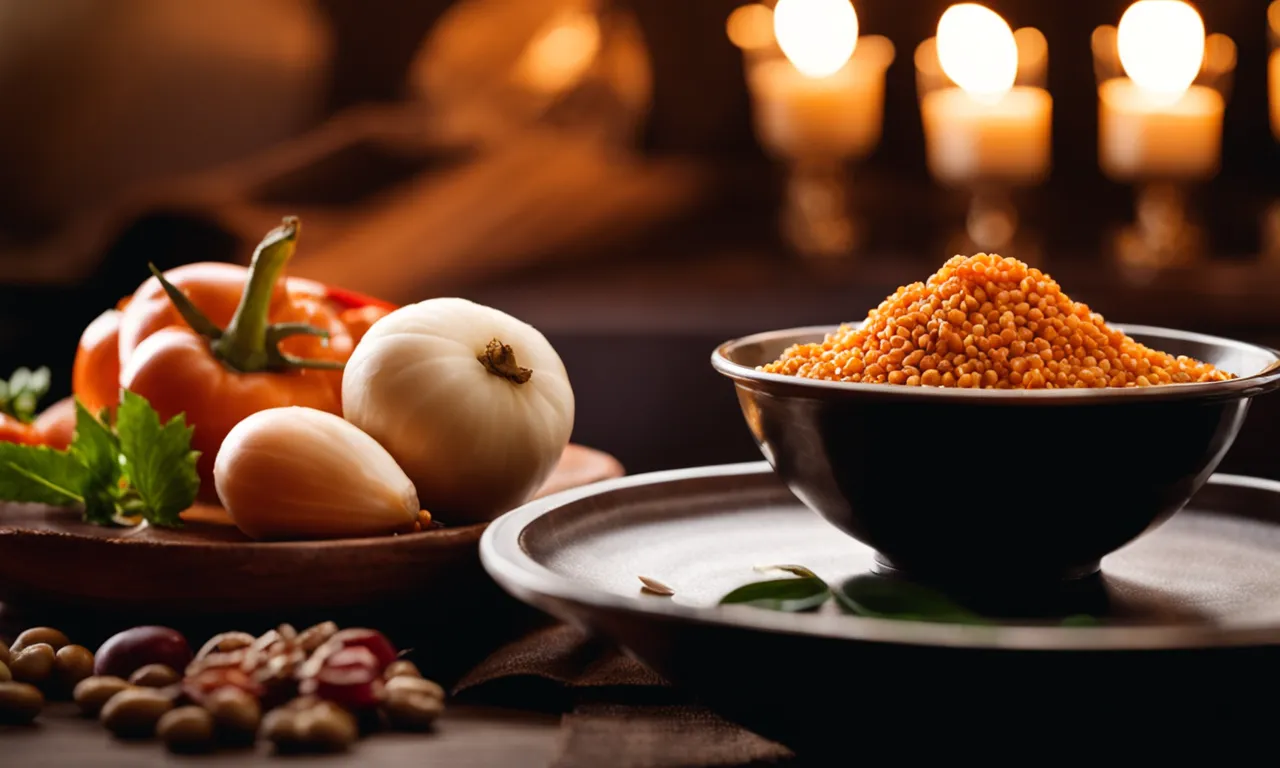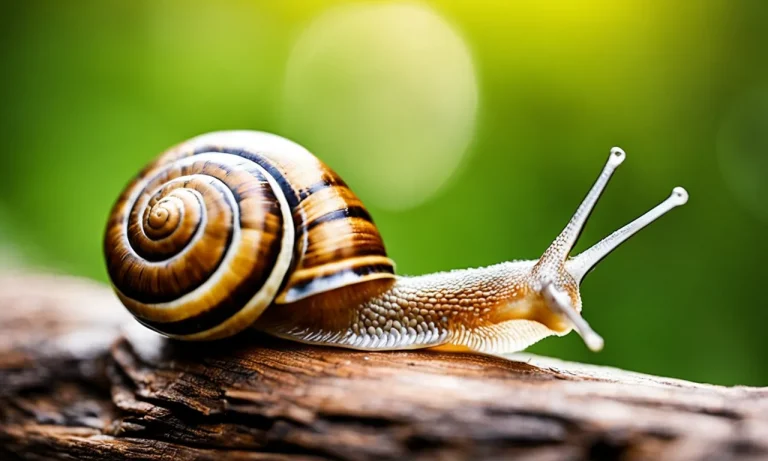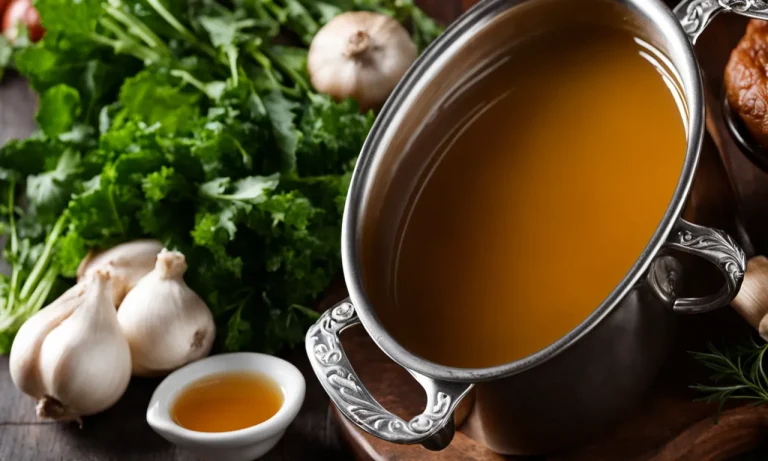Why Are Many Hindus Vegetarian?
Vegetarianism is closely associated with Hindu religious traditions. Many devout Hindus eschew meat and practice lacto-vegetarian or vegan diets. However, vegetarianism is not universally embraced by all streams of Hinduism.
This article will examine the historical and philosophical roots of Hindu vegetarianism, and why avoiding meat holds deep spiritual meaning for many followers.
If you’re short on time, here’s the quick overview: Vegetarianism is linked to non-violence and compassion in Hindu teachings. Some avoid meat because it’s seen as ritually impure. Vegetarianism is particularly associated with Vaishnavism. But not all Hindu sects prescribe a vegetarian diet.
Ahimsa and Non-Violence
Hinduism is one of the oldest religions in the world and has a deep-rooted philosophy of non-violence, known as ahimsa. This principle is based on the belief that all living beings are interconnected and that causing harm to any living creature goes against the fundamental values of compassion and empathy.
As a result, many Hindus choose to adopt a vegetarian lifestyle to uphold this principle of non-violence.
Belief in causing no harm
One of the main reasons why many Hindus choose to be vegetarian is their strong belief in causing no harm to any living being. They believe that every living creature, including animals, has a soul and deserves to live a life free from suffering.
By abstaining from eating meat, Hindus avoid participating in the violence and cruelty associated with the process of animal slaughter. For them, choosing a vegetarian diet is a way to align their actions with their spiritual beliefs.
Karma and rebirth
Another reason for the prevalence of vegetarianism among Hindus is the belief in karma and rebirth. According to Hindu philosophy, the actions one takes in this life will determine their future lives. By practicing ahimsa and abstaining from eating meat, Hindus believe that they are accumulating positive karma, which will lead to a better future life.
Conversely, causing harm to animals would generate negative karma, which could result in suffering in future lives. This belief in the cycle of rebirth and the consequences of one’s actions reinforces the commitment to a vegetarian lifestyle.
Plants seen to suffer less than animals
While Hinduism promotes non-violence towards all living beings, some Hindus argue that plants suffer less than animals. They believe that plants do not possess a nervous system or consciousness, and therefore, do not experience pain or suffering in the same way that animals do.
This belief allows them to consume plant-based foods without feeling a contradiction to their principle of ahimsa. However, it is important to note that this viewpoint is not universally held among all Hindus, and there are varying interpretations and practices within the religion.
Ritual Purity and Pollution
One of the main reasons why many Hindus choose to follow a vegetarian diet is rooted in the concept of ritual purity and pollution. In Hinduism, there is a strong belief that certain substances, including meat and bodily fluids, are considered impure and can negatively impact one’s spiritual well-being.
This belief is deeply ingrained in the Hindu scriptures and forms the basis for dietary restrictions.
Meat and bodily fluids seen as impure
Hindu scriptures, such as the Manusmriti, highlight the idea that the consumption of meat and bodily fluids can contaminate the body and mind. These impure substances are believed to disrupt the balance of one’s spiritual energy, known as prana.
By abstaining from meat and other impure substances, Hindus seek to maintain a state of purity and prevent any negative spiritual consequences.
Strict rules for Brahmin priests
Brahmin priests, who play a crucial role in Hindu religious rituals, are expected to uphold the highest level of purity. As per ancient Vedic traditions, Brahmins are required to strictly adhere to a vegetarian diet.
This is because the consumption of meat is believed to interfere with their ability to perform sacred rituals and connect with the divine. By abstaining from meat, Brahmins are able to maintain their spiritual purity and fulfill their religious duties.
Vegetarianism maintains purity
For many Hindus, following a vegetarian diet is seen as a way to maintain a sense of purity in all aspects of life. By choosing not to consume meat, they believe they are avoiding the potential negative karmic consequences associated with taking another living being’s life.
Vegetarianism also aligns with the principle of ahimsa, or non-violence, which is a core value in Hinduism. By practicing ahimsa through their diet, Hindus strive to promote peace and compassion towards all living beings.
It is important to note that while vegetarianism is widely practiced among Hindus, it is not a requirement for all followers of the faith. There are Hindus who do consume meat, especially in regions where it is culturally accepted or in specific sects that have different dietary guidelines.
The decision to be vegetarian or not ultimately depends on an individual’s personal beliefs and cultural background.
Bhakti Movement and Vaishnavism
The Bhakti Movement, which emerged in medieval India, played a significant role in shaping the vegetarian practices among Hindus. Vaishnavism, a major sect within Hinduism, emphasizes devotion to Lord Vishnu and his avatars, particularly Lord Krishna.
This devotion is centered around emotional attachment and love for the gods, which has had a profound impact on dietary choices.
Krishna’s role promoting vegetarian diet
Lord Krishna, one of the most revered deities in Hinduism, is often depicted as a cowherd and is associated with promoting a vegetarian diet. In the Bhagavad Gita, a sacred text of Hinduism, Krishna advises Arjuna to abstain from eating meat, stating that it is harmful to both the body and the soul.
This teaching has been widely embraced by followers of Vaishnavism, who view it as a way to show respect for all living beings and to live in harmony with nature.
Emotional devotion to gods
One of the key aspects of the Bhakti Movement is the emphasis on emotional devotion to the gods. This emotional connection creates a sense of empathy and compassion towards all living beings, including animals.
Many Hindus believe that by practicing vegetarianism, they are showing their love and devotion to the gods. This emotional bond leads them to adopt a vegetarian lifestyle as a way to express their commitment to their faith.
Mercy and compassion for animals
Hinduism promotes the concept of ahimsa, which means non-violence towards all living beings. This principle extends to animals, and many Hindus view vegetarianism as an expression of mercy and compassion towards animals.
By choosing not to consume meat, they believe they are avoiding causing harm to innocent creatures. This ethical stance aligns with the teachings of Vaishnavism and reinforces the idea that practicing vegetarianism is not just a dietary choice but a moral obligation.
It’s important to note that not all Hindus are vegetarians, as dietary practices can vary among different sects and regions. However, the influence of the Bhakti Movement and Vaishnavism on Hinduism has undoubtedly played a significant role in the prevalence of vegetarianism among Hindus today.
Regional and Sectarian Differences
When it comes to the vegetarianism practices among Hindus, there are significant regional and sectarian differences that contribute to the prevalence of vegetarianism within the Hindu community.
Meat-eating traditions
In some regions of India, such as the coastal areas and certain states like Kerala and West Bengal, meat-eating has been traditionally more prevalent due to factors like geographical location, historical trade routes, and cultural influences.
Coastal regions, for example, have easy access to fresh seafood, which has become an integral part of their cuisine. Similarly, areas with a significant Muslim population, such as Uttar Pradesh and parts of Rajasthan, have a higher percentage of non-vegetarian Hindus due to the influence of Muslim dietary practices.
These regional variations highlight the diversity within the Hindu community and the impact of cultural factors on dietary choices.
Tantric rituals
In certain sects of Hinduism, particularly those influenced by Tantra, meat consumption is considered a part of specific rituals and practices. Tantric rituals involve the use of various elements, including meat and alcohol, which are believed to have symbolic and transformative properties.
However, it is important to note that these practices are not followed by the majority of Hindus and are limited to specific sects and rituals.
Modern vegetarian movement
The modern vegetarian movement among Hindus gained momentum in the late 19th century with the emergence of social reformers like Mahatma Gandhi and Swami Vivekananda. These leaders advocated for vegetarianism as a means of promoting non-violence and compassion towards all living beings.
Their teachings and ideologies continue to influence many Hindus today, leading to a significant increase in the number of vegetarian Hindus. Additionally, the influence of the global vegetarian and vegan movements, which promote the health and environmental benefits of plant-based diets, has also played a role in the growing popularity of vegetarianism among Hindus.
Conclusion
While not universally practiced by all Hindus, vegetarianism holds deep spiritual meaning and philosophical rationale for many believers. By honoring Hindu values of non-violence, mercy, and ritual purity, eschewing meat consumption allows devotees to elevate their closeness to the Divine.







